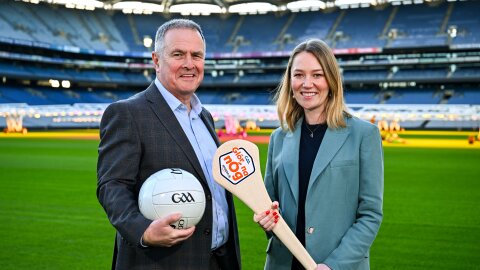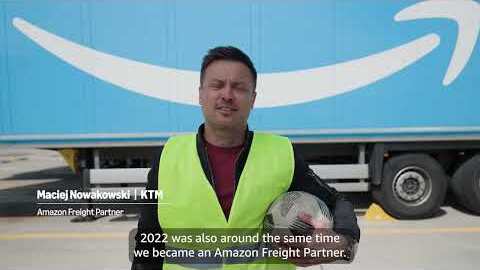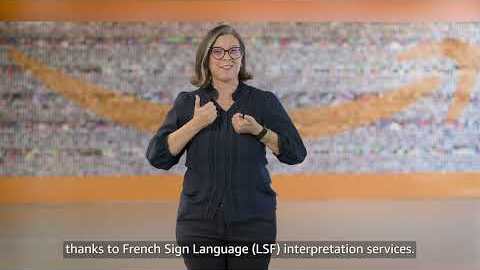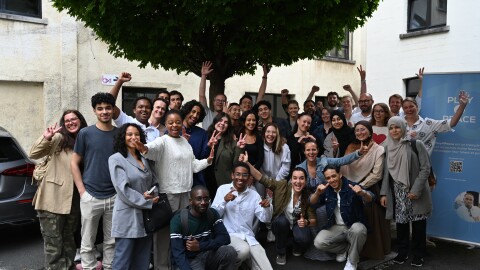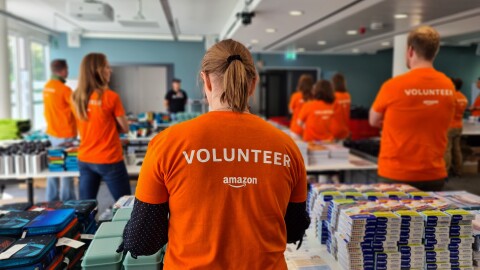Beginning in the United States, it is now rolling out across Europe, Middle East and Africa. In the United Kingdom, the company has launched a new initiative called Get IT, under the We Power Tech umbrella, designed to encourage a wider range of voices in the industry.
In Turkey earlier this year, a We Power Tech event in Istanbul brought together female leaders to discuss ways to increase women’s representation in technology and to learn more about the cloud. And it doesn’t stop here, as an audience at the AWS Summit in Dubai found out last month.
More than 16,000 freelance writers in the Middle East, many of whom had been unable to work in traditional structures, are now making an income thanks to one woman’s innovative solution to a business problem.
Entrepreneur Nour Al Hassan launched ‘Ureed’, the first editorial marketplace in the MENA region, after being unable to find consistently high quality, and quick, Arabic translation services.
‘Ureed’, which connects thousands of Arabic writers and editors with clients all over the world, has grown rapidly by providing opportunities for freelancers, mainly female, to work remotely - something still largely unusual in the Middle East.
“When I first started the business, I realized there was this huge pool of untapped talent,” says Nour. “There are thousands of smart, well-educated women in the region, who wanted to find challenging, interesting work, but needed more flexibility than most companies could provide. We solved that by bringing the work to them.”
Nour and her team, who have built a translation tool based on deep learning architecture using Amazon Web Services (AWS), now have a freelancer base that is more than two thirds female, working across eight cities in the region.
Nour was one of the speakers at the recent AWS Summit in Dubai, on a ‘We Power Tech’ panel with the theme Scaling Purpose-Driven Businesses. Developed in partnership with womena®, a multi-dimensional media company that accelerates equality through creative content and entrepreneurial experiences, AWS hosted leading female entrepreneurs from the Middle East to talk about how they’ve leveraged both technology, and forward-thinking working structures, to set up and grow their businesses.
In establishing hiring processes, and creating work environments that are more conducive to diverse teams, they are now able to serve the previously unmet needs of an increasingly diverse customer base.
Little Thinking Minds produces educational resources that aim to enhance children's skills and learning outcomes, as well as increasing their connectedness to the Arab identity. The ed-tech company develops products to reach teachers and students around the world. This includes those in areas where access to education is challenging, such as conflict zones and refugee camps.
“The idea for Little Thinking Minds came about when we saw that children in the Arab world were scoring below global standards in many standardized tests,” says co-founder Lamia Tabbaa-Bibi.
“One explanation is that they don’t read enough. When they do read, they don’t understand what they are reading. We launched our flagship product called I Read Arabic to try to improve literacy outcomes and reading comprehension. It is also able to address specific student needs with personalized learning experiences.”
Lamia has taken the approach of building a diverse team that represents different parts of the Arab world. “While Arabic is a common language, cultures in the Middle East are not homogeneous and as a creative company, we need people from different backgrounds and with different perspectives who can contribute a range of ideas. This results in better products for our customers.”
A lack of diversity in media led to ‘The Tempest’. The online platform has innovated the way content and storytelling speaks to and represents the world, by giving their audience a community. The platform brings forward voices of women in the Middle East and around the world, while making media more accessible to all. “If you are a woman and you have a voice, this is the space for you,” says co-founder, Mashal Waqar. “We started with two sections focusing on personal narratives and authentic storytelling, and as our audience grew we now provide 9 different channels covering everything from life and culture to social justice.”
From the outset, Mashal recognized that having a diverse team is key to success. “Our team is a reflection of our audience. If we didn’t have a diverse team we wouldn’t be successful in delivering the right experience. Our content has to come from specific demographics, and so our diversity is both organic and at the core of our mission.”
Empowering underrepresented groups with access to information is something Sophie Smith has also been pioneering, through Nabta Health, the company she founded to bring much needed healthcare services to women in the Middle East, Africa and Southeast Asia. With healthcare data usually dispersed between doctors and different providers, it can be difficult for an individual to see a full picture of their health, not to mention the fact that research and development within healthcare has been historically targeted at, and led by, men.
“Our mission is to help women manage their health by seamlessly integrating virtual care components such as mobile technology, smart devices and machine learning with traditional care pathways,” says Sophie. “We believe that the next generation of care combines major data sources in a way that enables women to manage their health in their own way.”
When hiring for her team, Sophie wants to attract a range of experience. That means being able to accommodate people at different life stages: “We offer a range of benefits, including a generous policy of parental leave that is equal for men and women. As an impact-driven business, we want to do everything we can to get the best out of our people.”
For Katharine Budd, co-founder of Now Money, driving impact has meant democratizing access to financial services for people who would usually not have access to traditional banks. After moving to the Middle East, Katharine and her co-founder saw that the requirements to start a traditional bank account were simply unachievable for many migrant workers. Together, they developed Now Money to provide low income workers in the Gulf with access to banking services through an app that allows them to pay bills and make low cost overseas transfers. When growing her team, Katharine sees different opinions as critical to her business success. “Diversity increases everyone's ability to communicate clearly. It means you have a much better perspective on your product, and it makes coming to work a more enriching experience.”





